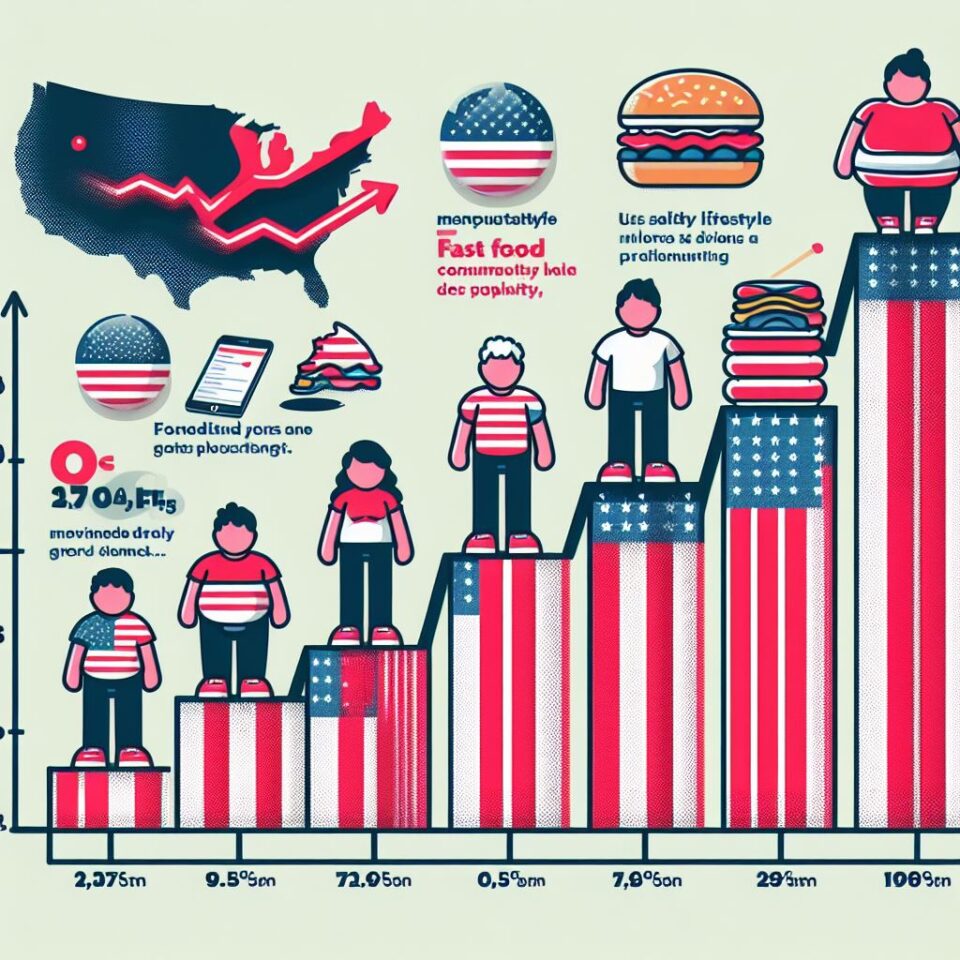10 Main Causes of Weight Gain in The United States
Posted on May 6, 2024 by Muhammad Kamran
10 Main Causes of Weight Gain in The United States
In the midst of the modern lifestyle embraced by many in the United States, an increasing number of individuals find themselves battling weight gain. While it’s a complex issue influenced by various factors, understanding the primary contributors is crucial for tackling this widespread concern. Here, we delve into the 10 main causes of weight gain in the United States.

Main Causes of Weight Gain in The United States
Here are 10 Main Main causes of Weight gain according to Studies.
- 1.Unhealthy Dietary Habits: The prevalence of processed foods and high-calorie, low-nutrient options in the American diet is a major culprit. Consuming these foods regularly can lead to weight gain over time.: With technological advancements and the rise of desk jobs, physical activity has taken a backseat in many people’s lives. A lack of regular exercise contributes significantly to weight gain.
- Super-sized Portions: Portion sizes in the U.S. have ballooned over the years, with oversized servings becoming the norm. This abundance of food encourages overeating and contributes to excess calorie intake.
- Low Physical Activity Levels: Despite the importance of regular exercise for maintaining a healthy weight, many Americans fall short of the recommended activity levels. This sedentary behavior further exacerbates the weight gain epidemic.
- Excessive Sugar Consumption: Sugary beverages and snacks are pervasive in American culture, leading to a spike in sugar intake. These empty calories contribute to weight gain and increase the risk of obesity-related health issues.
- Processed Food Epidemic: Processed foods often contain unhealthy additives, preservatives, and refined carbohydrates, which can disrupt metabolism and promote weight gain when consumed regularly.
- Stress Eating: Chronic stress has become a hallmark of modern life, leading many individuals to turn to food for comfort. Emotional eating can result in consuming excess calories and ultimately lead to weight gain.
- Sleep Deprivation: Inadequate sleep is linked to weight gain due to its impact on hunger hormones. When sleep-deprived, individuals may experience increased appetite and cravings for unhealthy foods, contributing to excess calorie intake.
- Genetic Predisposition: While genetics play a role in determining an individual’s susceptibility to weight gain, lifestyle factors ultimately influence weight outcomes. However, understanding genetic predispositions can inform personalized approaches to weight management.
- Environmental Factors: Neighborhoods lacking access to fresh, healthy foods and opportunities for physical activity are known as food deserts. These environmental factors contribute to disparities in weight gain and obesity rates across different communities.
Conclusion:
In conclusion, addressing weight gain in the United States requires a comprehensive approach that tackles the root causes head-on. By promoting healthier dietary habits, encouraging regular physical activity, managing stress effectively, and addressing environmental factors, we can work towards curbing the weight gain epidemic and fostering a healthier population.
Visit Our Free Weight Loss Consultation Page to Learn More
